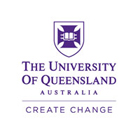Masters of International Relations/Peace and Conflict Studies
- Posted by The University of Queensland
- Home
- Courses
- The University of Queensland
- Masters of International Relations/Peace and Conflict Studies
Masters of International Relations/Peace and Conflict Studies
Graduate with two sought-after Masters qualifications, ready to engage in the fields of conflict resolution, aid and development. This two year full-time (or part-time equivalent) dual degree program allows you to obtain two highly sought-after and complementary qualifications from a school that is recognised internationally as a leader in peace…
Categories
COURSE DESCRIPTION
Graduate with two sought-after Masters qualifications, ready to engage in the fields of conflict resolution, aid and development.
This two year full-time (or part-time equivalent) dual degree program allows you to obtain two highly sought-after and complementary qualifications from a school that is recognised internationally as a leader in peace and conflict studies. It provides an understanding of the broad structures and dynamics of the international system, combined with more specialised skills and knowledge of critical issues and debates relating to peace and conflict.
The Master of International Relations covers the key issues and challenges in contemporary world politics, international security, foreign affairs and global, international and regional governance. You’ll be able to develop skills in international political analysis and political risk evaluation, and in addressing bilateral, regional and global policy objectives.
The Master of Peace and Conflict Studies builds knowledge of the forces that generate contemporary conflict and the process and practices that contribute to conflict prevention, resolution and peace-building. It also equips you with practical skills to engage in conflict analysis and resolution, and peace-building in the contemporary global context.
Our graduates have gone on to work in areas such as diplomacy, government, think-tanks, the UN, NGOs and the media.
REQUIREMENTS
To be eligible for entry, you’ll need:
a bachelor’s degree (or equivalent) in a relevant discipline (see below) with a GPA of 5.0, or a bachelor’s degree (or equivalent) in any discipline, plus the Graduate Certificate in International Relations from UQ, or the Graduate Certificate in Mediation and Conflict Resolution from UQ, or the Graduate Certificate in Peace and Conflict Studies from UQ, with a GPA of 4.0, or a bachelor’s degree (or equivalent) in any discipline (see below) with a GPA of 5.0, plus 3 years full-time equivalent, relevant work experience (see below). The listed grade point averages (GPA) are on a 7-point scale. Applications based on work experience will be individually assessed.
EDUCATIONAL INSTITUTION
The University of Queensland (UQ) is in the world’s top 50 universities. It is internationally renowned for its academic excellence and is the winner of more national teaching awards than any other Australian university. UQ is a member of the Universities 21 and a founding member of the Group of Eight (Go8) universities and a member of Universities Australia. UQ is a multicultural hub home to nearly 20,200 international students from 142 countries. Based in Brisbane, UQ has three campuses with advanced facilities and centres to support its students.
Do you want to Apply to:
Masters of International Relations/Peace and Conflict Studies
Add Your Heading Text Here
Please, login or Register to Apply!
Do you need extra info about:
Masters of International Relations/Peace and Conflict Studies?
The University of Queensland (UQ) is in the world’s top 50 universities. It is internationally renowned for its academic excellence and is the winner of more national teaching awards than any other Australian university. UQ is a member of the Universities 21 and a founding member of the Group of Eight (Go8) universities and a member of Universities Australia. UQ is a multicultural hub home to nearly 20,200 international students from 142 countries. Based in Brisbane, UQ has three campuses with advanced facilities and centres to support its students.




